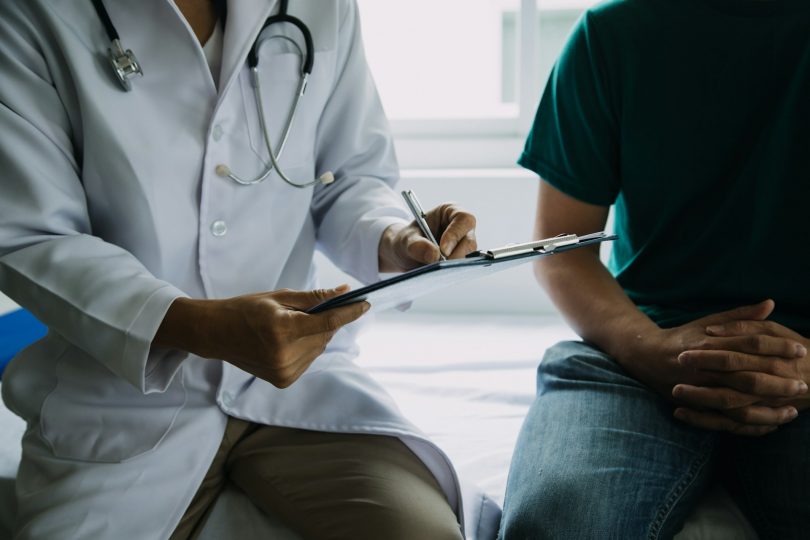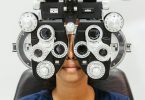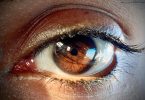“1 in 4 (Black) men will get prostate cancer.”
You should have seen my face when I learnt of this from a YouTube video I casually stumbled upon a few months ago. The words came from Joe Appiah, a former semi-pro footballer who was diagnosed with prostate cancer at 51.
At first, I didn’t want to believe it. I paused the video and did a quick search. What I discovered shocked me. The National Library of Medicine, the National Health Service, and Prostate Cancer UK all confirmed what Appiah said. The Prostate Cancer Foundation even reported that the risk could be as high as 1 in every 6 Black men—and that Black men are twice as likely to die from prostate cancer.
According to Zero Prostate Cancer, a man dies from prostate cancer every 15 minutes. The Centers for Disease Control and Prevention reported 255,395 prostate cancer cases in the US in 2022 alone. These numbers reflect only those men who were tested—imagine how much higher the figure might be if all men in the US were screened. The Cleveland Clinic places the death toll of prostate cancer deaths in the US at almost 36,000 each year. The statistics are staggering.
What began as a quick search became an opportunity to educate myself. My biggest takeaway from Appiah’s video was the critical importance of early testing and treatment. Yet, I also learned about persistent challenges: confusion around treatment options, limited access to care, and the deep disparities that continue to affect Black communities.
Common Treatment Options
Several treatment options are available today for men diagnosed with prostate cancer, and new ones are also emerging. Your doctor will help determine which is best for you.
- Surgery: Radical prostatectomy removes the prostate gland and can cure localized cancer. It may come with incontinence and erectile dysfunction, according to Johns Hopkins Medicine.
- Radiation Therapy: It can be administered either internally or externally. In both cases, new technology has enabled the targeting of cancer cells while sparing nearby tissues. The Mayo Clinic lists common side effects as fatigue, diarrhea, rectal bleeding, urinary leakage, and blood in the urine, among others.
- Hormone Therapy: Also referred to as Androgen Deprivation Therapy, slows prostate cancer growth by reducing testosterone. Better Health Channel said common side effects include loss of libido, erection problem, fatigue, weight gain, poor memory, etc.
- Newer Treatment: Recently, there has been a giant stride in novel therapy, such as those listed on the American Cancer Society website:
- Immunotherapy
- Target Therapy Drugs
- Chemotherapy
- Monoclonal Antibodies
- Vaccines
Barriers to Accessing Advanced Therapies
Despite the years of progress that have been achieved in the treatment of prostate cancer, there remain persistent barriers for Black men. Systemic inequities and social determinants are at the top of the list that lead to disparities in treatment access, mainly at the advanced stage of the disease.
According to eCancer, Black men with prostate cancer are more likely to have poor quality healthcare, spend more on treatment, and have worse postoperative outcomes than their white counterparts. UCLA Health said Black people were 24% less likely to get or be prescribed one of the novel hormonal therapy agents when compared to whites. Oncology Central also carried out a similar report, when in 2023 it said that Blacks are less likely to get hormone therapy when compared to whites.
Although Morehouse School of Medicine said Black men are at a higher risk of developing prostate cancer, we are still faced with a multitude of barriers when it comes to treatments, some of which include:
- Financial constraints
- Geographic access
- Systemic bias
- Information gaps
- Mistrust of the medical system
- Limited insurance
- Systemic racism
- Insufficient representation in research
How Black Men Fare Differently
Duke Health has reported that Black men may respond better to hormone therapy and newer drugs than white patients. Yet, research published in Sage Journal shows that Black men are more likely to be diagnosed at a younger age, are twice as likely to die from it, and have a higher risk of recurrence of prostate cancer when compared to white men. How is it that a group that may respond more favorably to particular treatments still suffers from higher mortality rates?
Other reasons for this, aside from the issues listed above, include:
- Delayed diagnosis
- An advanced stage of disease at moment of diagnosis
- Lower participation in clinical trials, restricting access to cutting-edge therapies
To be able to close the gap, all hands must be on deck, starting from the Black community, as it requires a multilayered approach and solution:
- Expanding screening and early detection
- Improving insurance coverage
- Supporting community-based education, mainly on new and emerging treatment
- Reducing financial barriers
- Increasing participation in clinical trials
- Building trust through culturally sensitive care and outreach
Elevate Black Health recommends that Black communities work together to achieve equitable and accessible treatment options for all Black men; otherwise, we will keep being on the wrong side of the statistics.
Additional Reading:
- Understanding the risk of prostate cancer in the black community. https://www.youtube.com/watch?v=bp-KG7OWdX0
- Ethnic Differences Among Black Men in Prostate Cancer Knowledge and Screening: a Mixed-Methods Study. https://pmc.ncbi.nlm.nih.gov/articles/PMC11486286/
- It’s important that men – especially Black men – are aware of their risk of prostate cancer. https://gmcancer.org.uk/gmcancernews/its-important-that-men-especially-black-men-are-aware-of-their-risk-of-prostate-cancer/
- Black men and prostate cancer. https://prostatecanceruk.org/prostate-information-and-support/risk-and-symptoms/black-men-and-prostate-cancer
- Black Men: Know Your Risk. https://www.pcf.org/patient-support/higher-risk/black-men-and-prostate-cancer/
- U.S. Cancer Statistics Prostate Cancer Stat Bite. https://www.cdc.gov/united-states-cancer-statistics/publications/prostate-cancer-stat-bite.html
- Prostate Cancer. https://my.clevelandclinic.org/health/diseases/8634-prostate-cancer
- Erectile Dysfunction After Prostate Cancer. https://www.hopkinsmedicine.org/health/conditions-and-diseases/prostate-cancer/erectile-dysfunction-after-prostate-cancer?__cf_chl_tk=sfJEF8qpAoCISvweDeBEUAOrr05e712AQJZuIiIlRMs-1759153142-1.0.1.1-dtovLsbetL2eMMctrYL7fdZX7Qz_ovAfVWxqfOQEQA4
- External beam radiation for prostate cancer. https://www.mayoclinic.org/tests-procedures/external-beam-radiation-for-prostate-cancer/about/pac-20384743
- Prostate cancer – androgen deprivation therapy. https://www.betterhealth.vic.gov.au/health/conditionsandtreatments/prostate-cancer-androgen-deprivation-therapy#possible-side-effects-of-hormone-therapy
- Take a shot at helping to end prostate cancer. https://www.cancer.org/cancer/types/prostate-cancer/about/new-research.html
- Racial differences in outcomes and costs of care in older men with prostate cancer. https://ecancer.org/en/news/8023-racial-differences-in-outcomes-costs-of-care-in-older-men-with-prostate-cancer
- Black men with advanced prostate cancer are less likely to receive crucial treatment, study finds. https://www.uclahealth.org/news/release/black-men-with-advanced-prostate-cancer-less-likely-receive
- Study reveals racial disparities in prostate cancer treatment. https://www.oncology-central.com/study-reveals-racial-disparities-in-prostate-cancer-treatment/
- Understanding and Addressing Prostate Cancer Disparities in Diagnosis, Treatment, and Outcomes Among Black Men. https://journals.sagepub.com/doi/10.1177/10732748241275389?icid=int.sj-abstract.similar-articles.7








